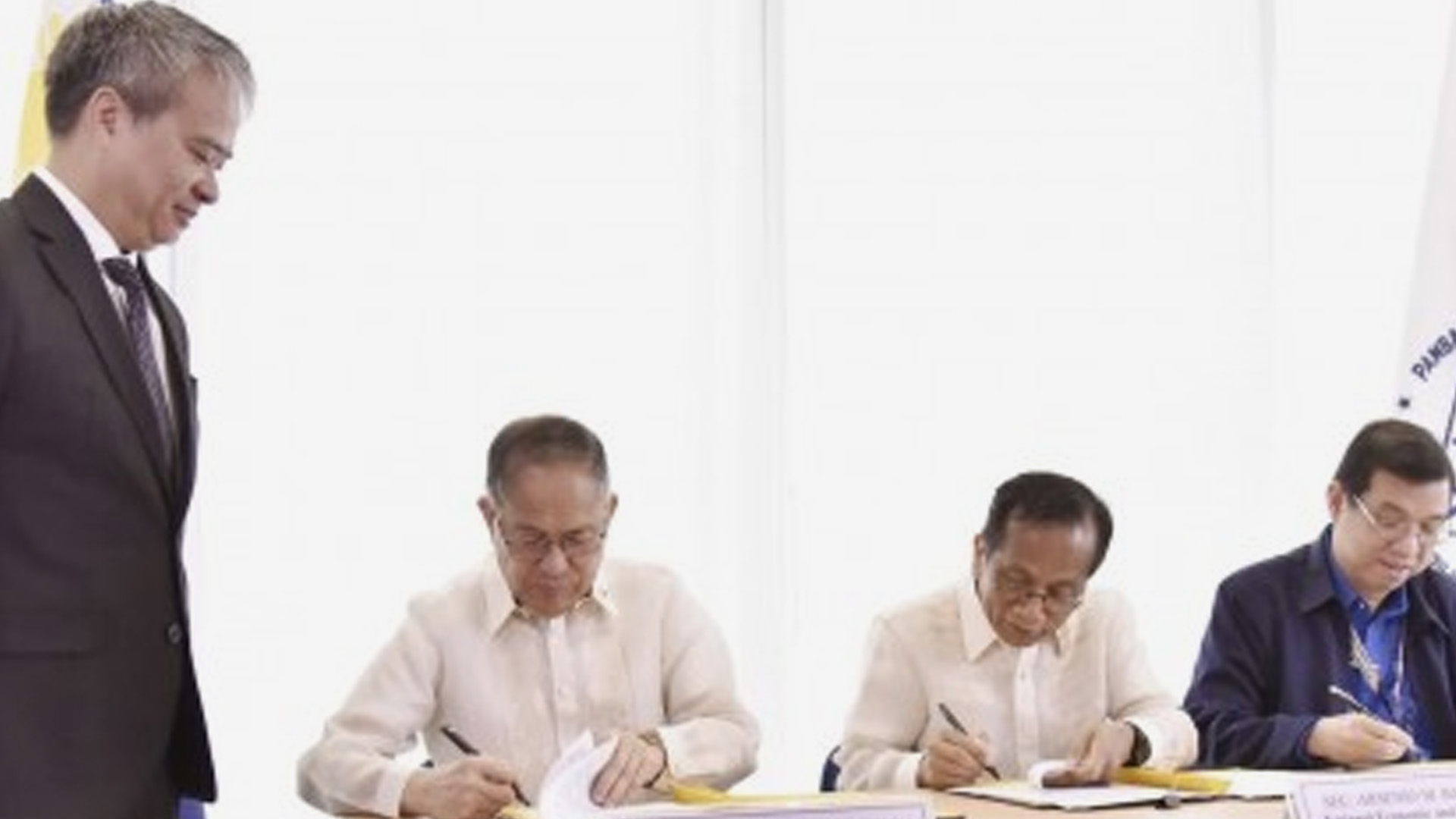Government agencies led by the Department of Labor and Employment (DOLE) have signed the Implementing Rules and Regulations (IRR) of Republic Act (RA) 11962 or the “Trabaho Para sa Bayan (TPB) Act”.
Labor Secretary Bienvenido Laguesma, National Economic and Development Authority (NEDA) Secretary Arsenio Balisacan and Department of Trade and Industry officer-in-charge Ceferino Rodolfo signed the law’s IRR in simple rites at the NEDA Central Office in Mega Tower in Mandaluyong City on Tuesday, the DOLE said in a news release Wednesday.
Laguesma said the signing of the IRR shows the commitment of the Marcos administration to a “comprehensive and united response in building a strong nation and a healthy economy.”
“Ito pong nasabing batas ay mayroon talagang pagkilala doon sa prinsipyo ng tripartism, consultation, at social dialogue. Pagpapatunay po ay bahagi ng council ang kinatawan ng (This law recognizes the principle of tripartism, consultation and social dialogue. This proves that our council includes representatives from the) marginalized at vulnerable sector, informal sector, labor organization, at (and) employers’ organization,” he added.
He noted that this gesture marks the beginning of a “more extensive collaboration and joint efforts from various stakeholders under a whole-of-government and whole-of-society approach, all driven by our shared commitment to harnessing the full potential of our nation’s workforce.”
He said the signing of the IRR paved the way for the effective implementation of the TPB Act in creating sustainable employment opportunities and fostering inclusive growth for the Filipinos.
He also commended the collaborative efforts of various stakeholders involved in finalizing the IRR.
Under the law, a TPB Plan, which will serve as the country’s master plan on employment generation and recovery to realize short-term and long-term goals and visions of the country, will be formulated by the TPB Inter-Agency Council.
Senator Joel Villanueva, author of the law, said the TPB Plan would help the government create a “resilient, comprehensive, coherent, future-oriented, and progressive” employment framework.
He said this plan will serve as the cornerstone of government initiatives in providing job opportunities for Filipinos and in adopting the ever-changing nature of work and emerging trends in the labor market.
Signed into law by President Ferdinand R. Marcos Jr. in September last year, the law aims to increase the income-earning ability of Filipinos by strengthening employability, improving the quality of employment, and establishing shared labor market governance. (PNA)







